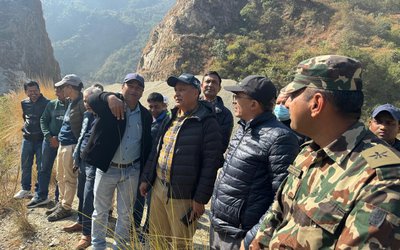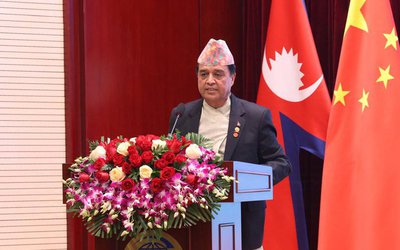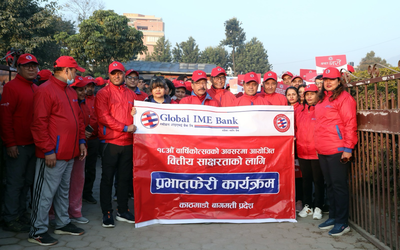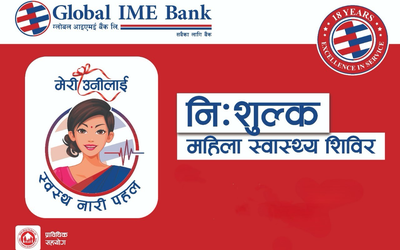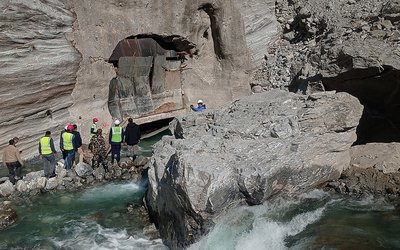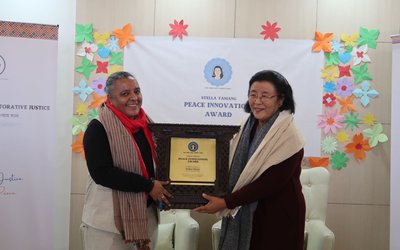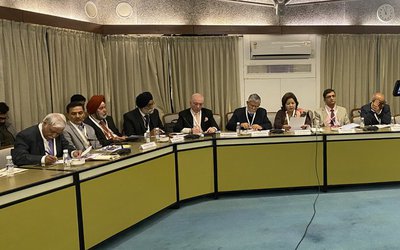

Authors: Bishal Raj Paudyal And Sakar Koirala
The COVID-19 pandemic has forced most companies into flexible work arrangements. Companies have finally woken up to a new reality of work-from-home initiatives, to at least trying to keep businesses afloat.
As for accounting firms, the challenges of work from home are even bigger. The black swan event has resulted in the disruption of their core services such as statutory audits, client engagements, and access to client sites.
The disruption is because audits traditionally have been regarded as “one-stop” face to face service assignments between audit firms and clients where the bulk of the audit work such as capturing and authenticating documentary evidence, stock counts, assessing changes in internal control and tracing evidence needed to be done onsite before ratifying and signing off the financial statements. This also covers observations related to occurrences of fraud, maladministration, corporate fiasco, and professional transgression.
However, the progressively more ambiguous economic outlook in the stir of the pandemic has forced the global accounting profession to go remote through harnessing the power of technology and artificial intelligence (AI).But for Nepal, widespread adoption of technology for remote auditing has still remained indefinable. This has resulted to diminish the accounting profession’s capacity to stay barely productive and deliver audits remotely during the lockdown period and thereafter.
Leverage technology, communication and planning
Auditing remotely is indeed a promising opportunity for Nepal and is already widely practiced elsewhere. To implement remote audits, there is imperative for a robust combination between technology, communication and planning. Information and communication technologies (ICTs) which include sampling through spreadsheets, VBA for repetitive analyses, and email threads for communication with clients are already in practice. However, these only allow them to work remotely to a limited extent. The current lockdown calls for higher utilization by re-arranging and developing an amenable ICT infrastructure which for long has been under-utilized.
To completely transition to remote auditing, existing ICTs should be upgraded with further innovative arrangements that encourage remote correspondence between the auditor and auditee, data gathering, compromise of information exchanges, and monetary evidence and examination. Data extraction tools must be put in place effectively. Applications like Power BI and Mind Bridge Ai Auditor must be exploited to an enormous degree and reviewed completely for better review quality. Be that as it may, an effective remote review includes something beyond the grasp of new advances. It requires powerful communication between the auditor and the auditee.
A correspondence plan ought to be set up before the remote audit starts that illuminates the recurrence of routine interchanges, just as conventions for trading records and getting the examiners' inquiries replied in an opportune way. While there is developing commonality with Zoom and Skype, it is helpful for the two gatherings to have a trial if conceivable – checking data transfer capacity, programming similarity and sound channels. To ensure a smooth workflow, detailed planning should be thorough and comprehensive whilst encapsulating scope based on available technology.
Analogous to typical audits
An audited financial statement that results from the remote audit is not different from the traditional ones, and the information and assessments encompassed in them are legitimate in the eyes of brokers, board individuals, investors, financial specialists and different partners. For instance, The Financial Reporting Council (FRC) of the UK and Ireland have already published COVID-19 guidance for auditors. Auditors comply with standards set by the FRC which enable them to provide reasonable assurance and obtain appropriate audit evidence. Firms, on the other hand, are exploiting already available technology to make remote audits successful. For instance, some firms are using drones, and Google Earth for inventory counts to provide sufficient and appropriate audit evidence. As for Nepal’s apex accounting institution, The Institute of Chartered Accountants of Nepal (ICAN), is yet to produce guidance notes for auditing during COVID-19. Recent research also shows that remote audits could be a new normal. Sure, auditing standards ought to be maintained, which necessitates ICAN and relevant authorities to step in quickly. Thus, it is imperative to work in tandem if the Nepalese accountants are to be regarded as global ones.
Challenges to the practitioners
However, remote auditing comes with challenges. Professionals should learn new abilities, strategies or figure out how to utilize new programming. Before, accountants were familiar with the state of affairs of tick, flick and the usual copy-pastes. In order to exploit the new normal, accountants must display changed mindsets and adopt technological change, digitalization and embrace the increasing demand for agile communications and leverage technology solutions such as Computer Assisted Audit Techniques (CAAT), telephone and video conferences, and interactive web-based communication. To normalize the new practices, authorities such as ICAN could play a catalyzing role in the case of remote audits.
Challenges to the practicing firms
Every audit firm is distinct in its own way of working and organization structure. It would be hard to prescribe a set of rules to follow going into the remote audit and accounting structure. However, it all comes down to setting priorities right and expectations early as to what is acceptable and what is not in terms of technology-based auditing and accounting. Setting up tools and infrastructure to adopt cloud computing and laying the foundations for cybersecurity to mitigate the risk of the virtual environment shall lead the accountants and auditors to be ready to support clients – anywhere and anytime. The challenge of managing the human resource shall escalate, however, with the understanding of the fact that it is not exactly the management of people but it is about setting the expectation, supporting and monitoring the work of employees and dealing with the situation through the process of training and role changing. The hard job of keeping the human wall intact can be mastered even during the transition into the new normal. The re-opening of audit and accounting firms after the lockdown period imposed by the Nepalese government will not be an at once normal scenario. Maintaining social distancing will have to go on for quite a time. Entire staff may not be present for a certain period, also it will not be feasible and prudent to visit client places. Some firms have already started adopting the technology and are diving into the new normal while others are waiting for the situation to calm.
Nepalese audit firms need to define methodologies related to maintenance of the office and the work process, inculcating what type of services, whether it be auditing, tax or corporate law aspects can be delivered to the client in terms of technology. Questions like where the data is to be kept, how it is to be documented, what if a peer review from the ICAN happens, whether the reviewer will agree to this firstly, whether the documentation meets the standards of the ICAN and the Standard of Auditing, whether it will commensurate to the documentation requirement of the Income Tax Authorities, so on and so forth will arise and will be solved with time.
Client-auditor relationships could be significantly impaired
Client-auditor relationships will also have a significant impact due to remote auditing. Auditors have long gained trust and confidence in their clients’ management abilities from observing them in the office. But that’s no longer an option in many cases. If remote work becomes the new norm, that trust built over years of client-auditor relationships could be jeopardized. However, in this matter, auditors must have a detailed communication plan with the client and it should be one that aims to continue to solidify and enhance the relationship.
More empathetic, less inquisitive
Remote auditing will certainly make auditors more empathetic because it will put them in the driver seat, allow them to answer questions such as how the business is performing and the financial risk it currently faces. To make this happen, it is the collective responsibility of the profession to leverage technology to elevate the value of the profession and the time is now. Often, the accountants are blamed and shamed for not being innovative enough, whilst, this can be an event to develop an invention in the accounting field by cultivating the technological leverage, for the firms of the future and move towards a better future of the firms.
Way forward
It doesn’t matter until when the COVID-19 situation exists. Nepal needs to be smart about how it conducts business given that we are the second poorest country in Asia today. And this circumstance gives us the perfect opportunity to embrace efficient practices going forward.
CA. Paudyal is a Business Analyst based in Bangkok. He can be reached at bishalrajpaudyal@gmail.com;
CA. Koirala is a practicing chartered accountant at TR Upadhya and Co, Kathmandu. He can be reached at koiralasakar@gmail.com



